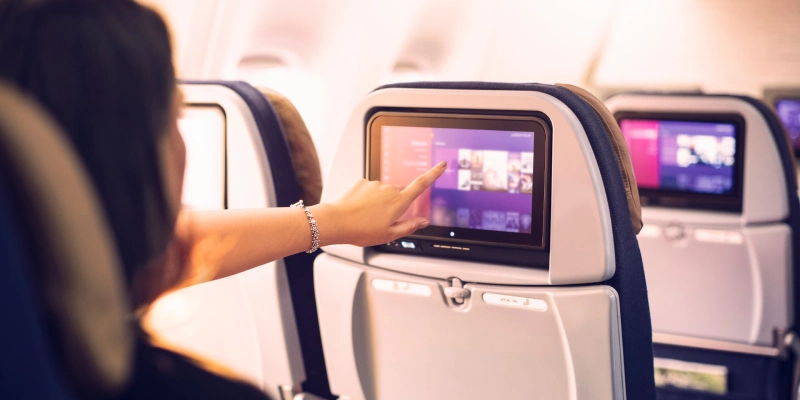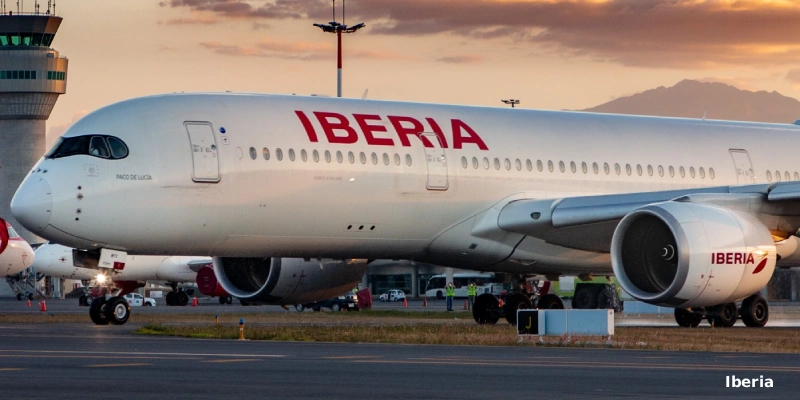Facemasks are now commonplace on airplane flights and, unfortunately, so are unpleasant confrontations over their use. Since the pandemic began, flight attendants and crew members have reported to the federal government more than 200 incidents in which they were harassed or threatened over in-flight mask policies.
See also: Southwest Airlines to vaccinate employees against COVID-19 for free.
In one case, a flight attendant recounted that four passengers who did not keep their masks on harassed her over what they called “a simple mask issue.” The situation became so tense that the plane had to return to the gate. In another incident, a passenger who continued to remove his mask rolled his eyes and told a flight attendant to shut up. He then shouted, “Shut up!”.
See also: American Airlines extends agreement with the U.S. Treasury to receive assistance.
Other flight attendants have faced passive aggressive displays of defiance. One flight attendant noted that a passenger refused to put his facemask back on after in-flight beverage service. This, despite multiple warnings. Ultimately, this person told the crew, “Well, if I’m holding my water bottle, I can’t wear my mask, right?” He then drank the water slowly for the remainder of the flight. On that occasion he took advantage of a policy that allows passengers to remove their masks while actively eating or drinking, CNN reported.
Flight attendants are in a tough spot when it comes to face masks
When airlines institute mandatory facemask policies to keep business running, the task of enforcing the rules often falls to flight attendants. In the United States, where such a basic safety measure against covid-19 is quite politicized, that task can be a challenge. Sometimes it’s downright dangerous.
“Getting mass compliance has been one of the most difficult parts of our job.” So says Allie Malis, an American Airlines flight attendant and government affairs representative for the Association of Professional Flight Attendants. “We’re considered essential workers, but there’s no hazard pay or anything like that,” she added.
Airlines and crew members point out that the vast majority of passengers comply with facemask policies. However, flight attendant unions say their members regularly encounter travelers who respond with belligerence, verbal threats and even physical aggression.
In the absence of federal regulations on mask use, many flight attendants felt there was little they could do to ensure compliance. Or even to protect themselves against backlash and assault.
But this Thursday, President Joe Biden issued an executive order directing federal agencies to require masks at airports and on airplanes. Also on trains, ferries, buses and other public transportation. And flight attendants are welcoming the news.
FAA adopts stricter approach to in-flight respirators
The situation has become very worrisome. To the point that the Federal Aviation Administration (FAA) recently announced that it would take a stricter approach to dealing with unruly passengers.
By March 30, 2021, passengers who assault, threaten, intimidate or interfere with an airline crew could face fines of up to 35,000 and even be detained, according to the FAA. Previously, the agency addressed these cases with warnings and civil penalties, among other methods.
“We have zero tolerance for violent or threatening passenger behavior. And we will take the strongest possible action against any passenger who does so.” So warned FAA Administrator Steve Dickson in a video last week.
In a Jan. 13 press release, the FAA reported that it had seen a “disturbing increase in incidents in which airline passengers affected flights with threatening or violent behavior.” The statement cited both passenger refusals to wear masks and recent violence at the U.S. Capitol as incidents.
The change comes after the FAA in December proposed civil penalties against two passengers who allegedly assaulted flight attendants who asked them to wear masks.
One of the cases dates back to last August. According to the agency, a passenger on an Allegiant Air flight struck a flight attendant, shouted insults and snatched a phone while the crew was talking to the captain about the passenger’s refusal to wear a mask. The agency proposed a $15,000 fine.
A different case occurred that same month. A passenger on a SkyWest Airlines flight from Atlanta to Chicago removed his mask, annoyed other passengers and sexually harassed a flight attendant, the FAA said. The agency proposed a $7,500 fine.
In November 2020, the agency reported 108 incidents of unruly passengers during the year. Although, the FAA did not specify how many of those incidents were related to the facemask issue.
Federal order for facemasks would provide support, say unions
All major U.S. airlines already have mask policies. And several have even instituted “no-fly lists,” which ban certain passengers who refuse to wear masks from flying with them during the pandemic.
In January, United Airlines said it banned nearly 615 passengers for noncompliance since it tightened its mandatory mask-wearing policy in June. Delta Air Lines told CNN that more than 700 people were added to the carrier’s exclusion list since last May. The airline added that this is a small proportion, considering that approximately 1 million passengers fly with them each week. American Airlines did not provide a specific number. Although it said the vast majority of customers comply with its mandatory mask-wearing policy.
Still, the federal requirement to wear masks on planes provides a critical backstop for flight attendants, union officials say. Precisely, as they are the ones who regularly deal with unruly passengers.
“The lack of federal guidelines or orders has made (flight attendants’) jobs difficult. And it’s made more difficult because of inconsistent mask mandates across the United States,” Taylor Garland, spokesperson for the Association of Flight Attendants-CWA, told CNN.
Garland added that a common response flight attendants receive from passengers who refuse to wear masks is that “it’s not a law.” The federal requirement, he added, “would eliminate that argument for them.”
Activists say it would also make things fairer
The federal aviation mandatory facemask order would also address what passenger rights groups see as a problem of uneven enforcement. Which, they say, results from allowing airlines to institute and enforce covid-19 security measures on their own.
“It’s very questionable what authority airlines have in public spaces to tell people they must wear a mask. And, if they don’t, what the penalties could be,” Paul Hudson told CNN. Hudson is president of FlyersRights.org.
For example, some parents have reported being removed from flights because their young children were not wearing face shields. This, despite conflicting public health guidelines on whether young children should be required to wear face shields.
Many airlines have since revised their mask requirements for children. However, Hudson said he believes uniform standards would improve safety and fairness.
“Suppose we let airlines decide whether you could smoke on an airplane. That was the case for a long time, and each airline had its own policy. That didn’t work so well,” he explained. “Uniform rules and laws are the best way. And often the only way you can have fairness, safety and health protection in this case,” he added.
More than 30 transportation unions filed a petition with the Department of Transportation last year calling for masks to be mandatory on all commercial transportation. Meanwhile, FlyersRights.org formally petitioned the department to do the same on airplanes and at airports.
But the Trump administration refused to require masks on planes, trains, buses and ferries. And it did so on the grounds that face shields were already required in practice.
The general counsel to then-Secretary of Transportation Elaine Chao wrote in a letter that such regulations were not necessary. And she cited protocols issued by the Centers for Disease Control and Prevention (CDC). It also cited mask policies already implemented by airlines and other transportation systems. The department added that “there should be no more regulations than necessary.”
Questions Remain
Questions remain about when Biden’s executive order requiring facemasks on interstate travel will go into effect and how it will be enforced.
Activists like Hudson said they are concerned that it cannot be enforced without formal approval from the Department of Transportation and other relevant agencies. Although, the text of Biden’s order instructs federal agencies to take action.
Still, airlines and flight attendants are optimistic.
“Joe Biden has made it very clear that he intends to institute a national mandate across the board. But, also specifically for transportation, including aircraft,” Garland said. “That will go a long way toward supporting flight attendants and making it very clear that you must arrive on the plane with a facemask and have it on at all times.”
By Harmeet Kaur, Natalia V. Osipova
Related Topics
LATAM Recognized for Third Time by APEX as Airline with “Best Inflight Entertainment in South America”
Iberia to Offer Record Capacity to Latin America This Summer: 3.35 Million Seats and Up to 366 Weekly Flights
LATAM Resumes Flights Between Bogota and Caracas Starting February 23
LATAM Consolidates Rosario–São Paulo Route: Daily Service Starting in September

Plataforma Informativa de Aviación Comercial con 13 años de trayectoria.




